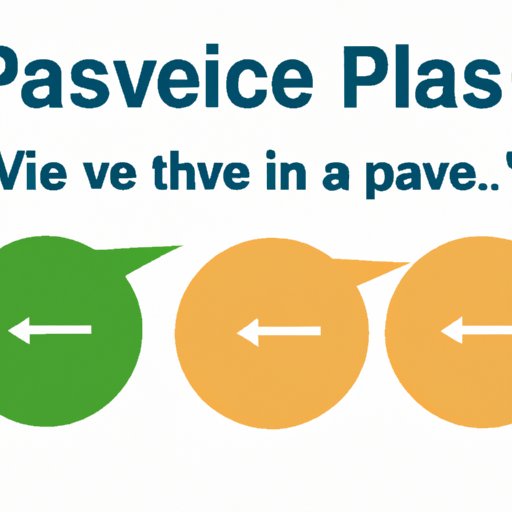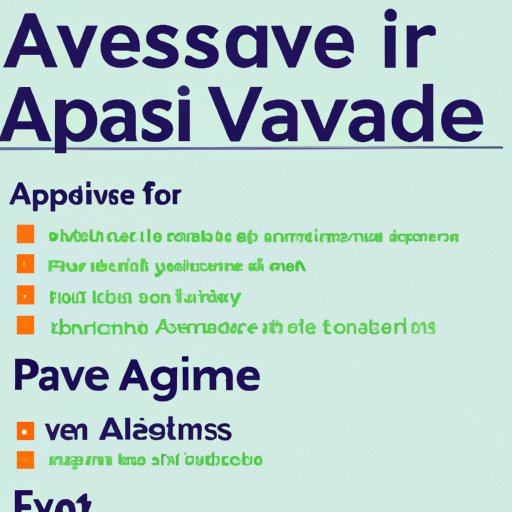Introduction
Writing can be a difficult task for many people. Not only do you have to think of what to write, but you also have to make sure your writing is clear and concise. One way to ensure that your writing is easy to understand is to avoid using passive voice.
Passive voice occurs when the subject of a sentence is acted upon by the verb. For example, “The ball was thrown by John” is an example of passive voice because the subject (ball) is being acted upon by the verb (thrown).
Why It’s Important to Avoid Passive Voice
Using passive voice can make your writing wordy and unclear. Active voice, on the other hand, is direct and straightforward. This makes it easier for readers to understand what you’re trying to say. Additionally, active voice is less likely to cause confusion or misunderstandings.
In addition to making your writing clearer, avoiding passive voice can help you sound more confident. When you use active voice, you are taking ownership of your words and speaking confidently. This can make your writing more persuasive and engaging.
Use Active Voice
Active voice is when the subject of the sentence performs the action of the verb. For example, “John threw the ball” is an example of active voice because the subject (John) is performing the action (threw).
Using active voice gives your writing a sense of direction and clarity. It also makes your sentences shorter and easier to understand. Additionally, active voice can make your writing more interesting and engaging.

Know When to Use Passive Voice
Although it’s generally best to avoid using passive voice, there are times when it can be beneficial. For instance, if you want to emphasize the object of the sentence instead of the subject, passive voice can be helpful.
For example, “The ball was thrown by John” emphasizes the ball instead of John. This can be useful if you want to focus on the object rather than the subject.

Read Your Writing Out Loud
Reading your writing out loud can help you identify passive voice. As you read, pay attention to any sentences that sound awkward or clunky. These are likely sentences written in passive voice.
Once you’ve identified the passive voice sentences, rewrite them in active voice. This will make your writing clearer and more engaging.
Use Strong Verbs
Using strong verbs can help you avoid passive voice. Strong verbs give your writing energy and make it more descriptive. They also make your sentences shorter and more concise.
For example, instead of using the verb “made,” you could use the verb “created.” Instead of using the verb “said,” you could use the verb “proclaimed.” Using strong verbs can make your writing more powerful and engaging.
Have Someone Else Read It
Having someone else read your writing can help you identify passive voice. Ask them to point out any sentences that sound awkward or unclear. These are likely sentences written in passive voice.
Once you’ve identified the passive voice sentences, rewrite them in active voice. This will make your writing clearer and more engaging.
Conclusion
Avoiding passive voice in your writing can help make it clearer, more concise, and more engaging. To avoid passive voice, use active voice, read your writing out loud, use strong verbs, and have someone else read it. By following these tips, you can ensure that your writing is clear and effective.
(Note: Is this article not meeting your expectations? Do you have knowledge or insights to share? Unlock new opportunities and expand your reach by joining our authors team. Click Registration to join us and share your expertise with our readers.)
